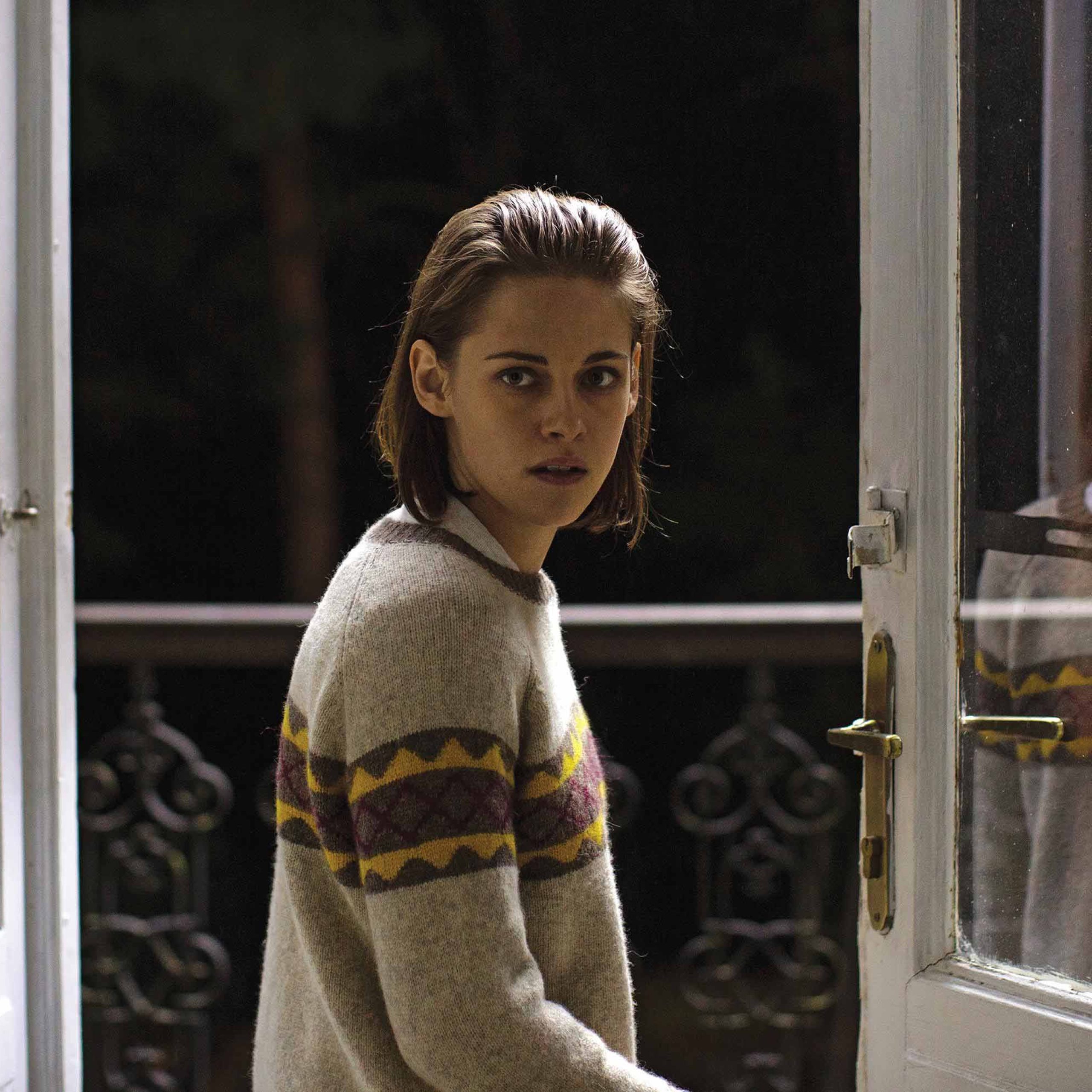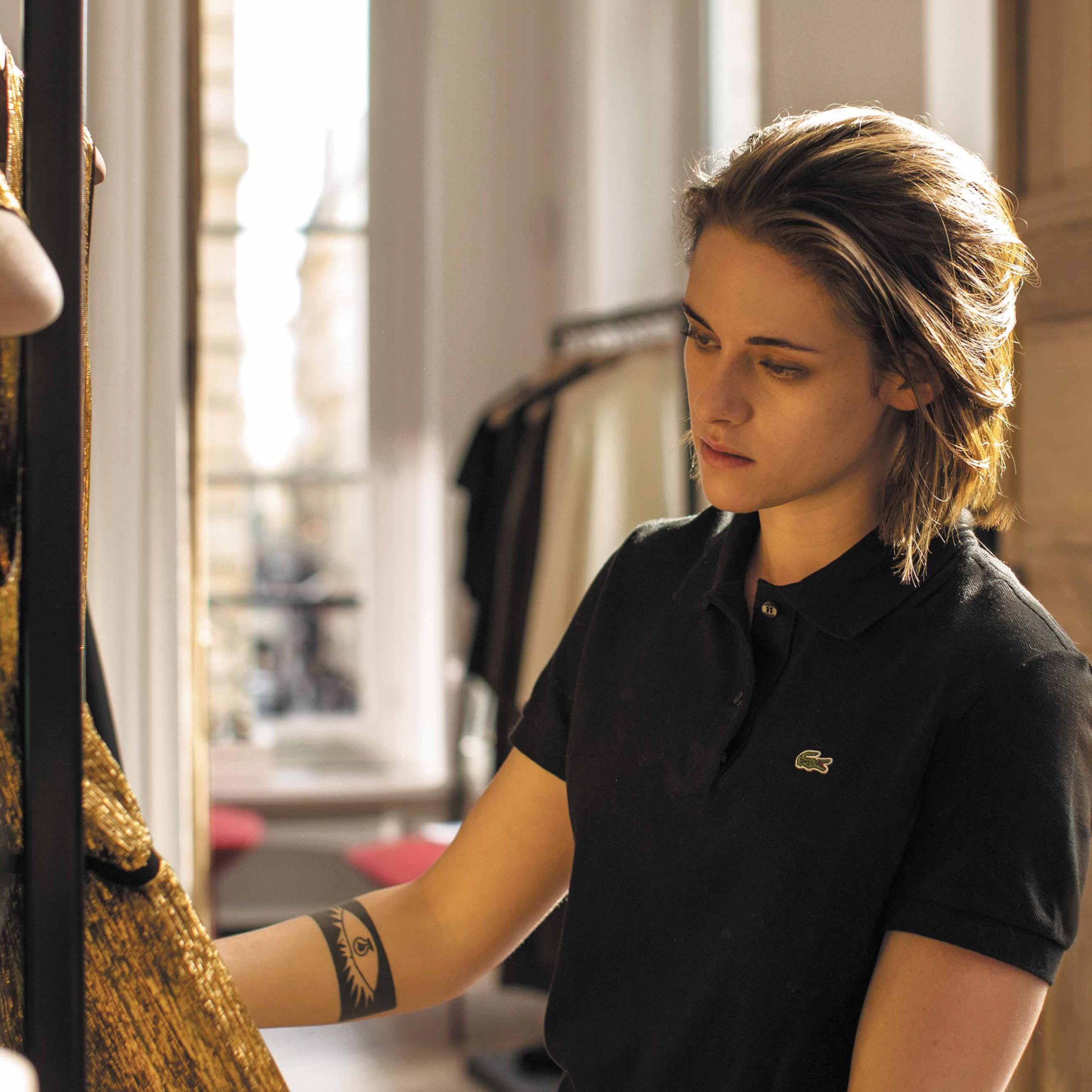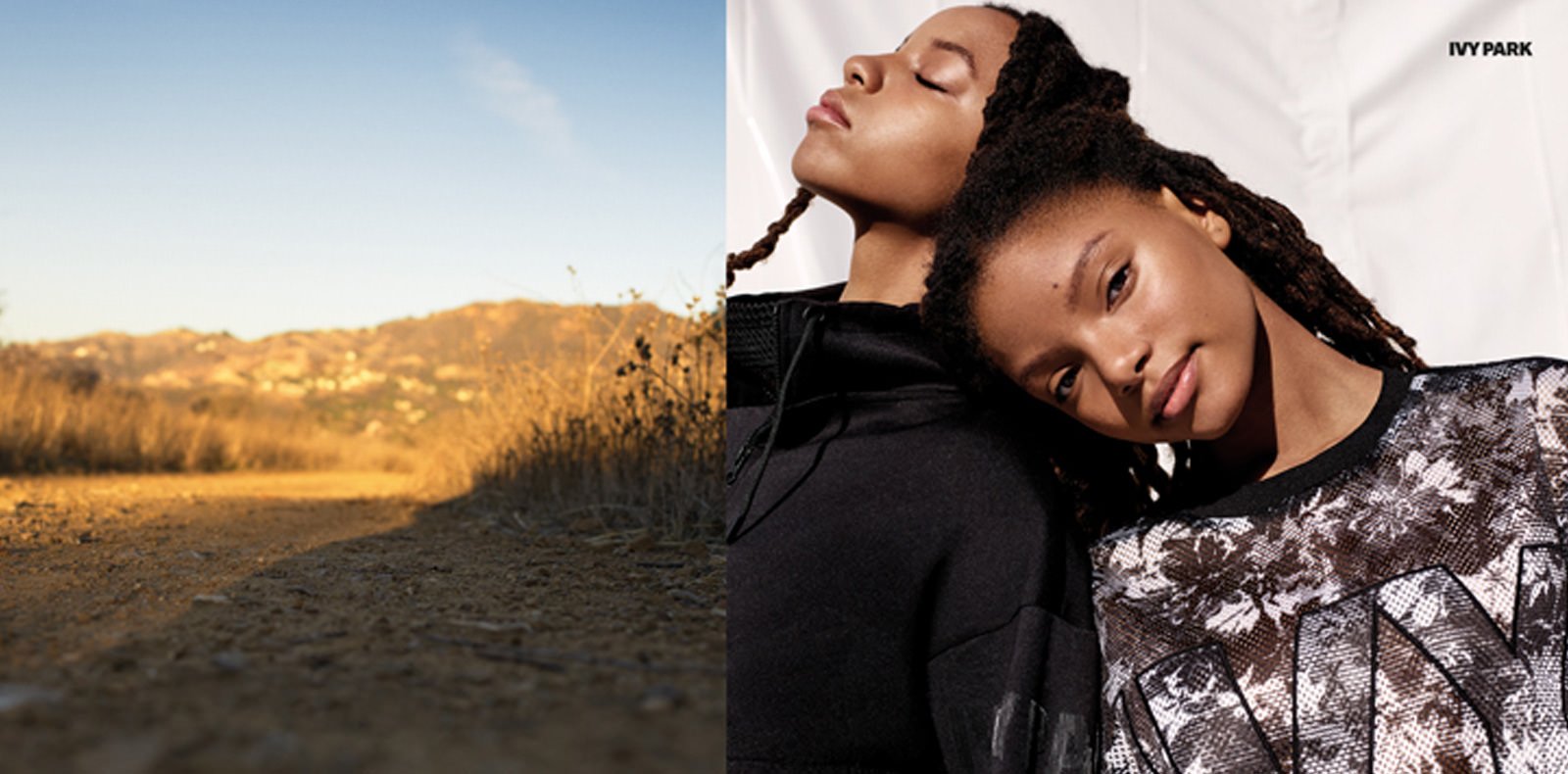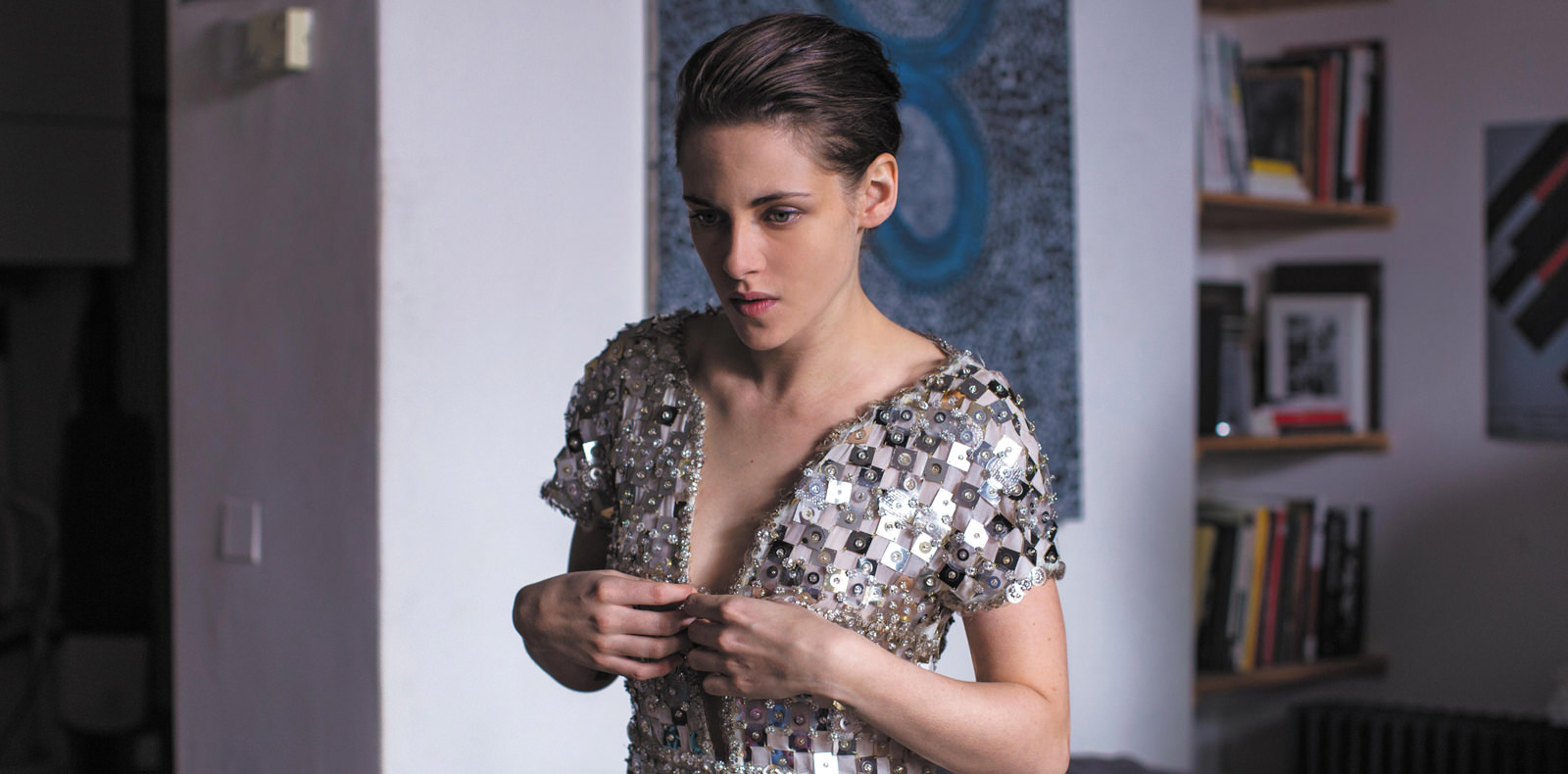
8
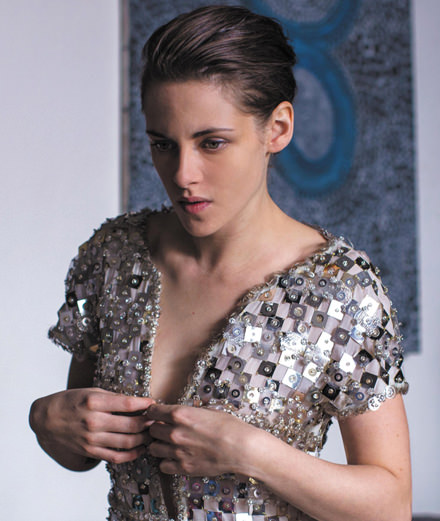
8
Direct from Cannes: is Kristen Stewart the biggest actress of our time?
Starring in films by Olivier Assayas (“Personal Shopper”) and Woody Allen (“Cafe Society”), Kristen Stewart clearly stands out as the actress who best embodies the modern game, oscillating between total detachment and complete commitment.
By Olivier Joyard.
In the opening scenes of Personal Shopper, Olivier Assayas’ new full length movie, it’s like a small shift in time has taken effect. Kristen Stewart appears in a diffused sombre glow, pale and grey. Like an eternal dawn light. Her closed expression doesn’t quite have the same youthful traits, but there’s a furtive memory of the Twilight years, like a ghost from another era and film genre. In fact ghosts are everywhere in this film that recounts the wanderings of young assistant in charge of a celebrity’s wardrobe, whose twin brother recently died from a heart attack. Less inspired when it confronts spectral representations and spiritualism a little too hastily, Personal Shopper remains stuck fast to our retinas as it works its crucial task: observing the metamorphosis of an actress.
Kristen Stewart, like so many others, could have disappeared after the first slap of success, but instead she’s staged her emancipation, making it the subject of this decisive step in her career, even though she’s only just turned 26. In 2014 with Sils Maria, also by Assayas, Robert Pattison’s ex-girlfriend freed herself of her starlet rags as she played a stunningly natural personal assistant to a famous actress interpreted by Juliette Binoche. This time the film doesn’t focus on her relationship with the absent star whose clothes she chooses.
“I play a lonely young woman, totally isolated, and sad. It actually left me in a pretty pained state.”
Stewart traverses Personal Shopper alone. She drags her sneakers, jeans and worried expression from boutique to boutique, from Chanel to Cartier, in complete indifference. We watch her attempting to survive her grief, trying to get her fragile body back onto the rails of desire. She strips naked in front of a doctor; she tries on a designer gown in an unforgettable scene where the actress confronts all the fantasies that she herself is the subject. She receives text messages from a mysterious admirer/poison pen letter writer, she tries to make contact with her dead brother, she navigates the streets of Paris, she unsmilingly takes the metro. It’s a difficult exercise for an actor to have no one to address, to dialogue with the invisible. Which is exactly what the actress suggests when she talks about the film. “I play a lonely young woman, totally isolated, and sad (…). It actually left me in a pretty pained state. Thankfully during filming I was surrounded by people I love and I never actually felt alone. If there hadn’t been such a positive and friendly atmosphere on set, I would have been a mess; I’d have collapsed on the floor. In the film, I never stop, I’m constantly on the move, I’m in perpetual motion. I lost a lot of weight during that shoot. It was exhausting.”
“In only two films Stewart has confirmed her reign over today’s cinema.”
Kristen Stewart overcomes this exhaustion to make a full and fascinating movie. Among today’s young actresses, no one else is better able to embody the modern game, mixing deadpan detachment and complete committal, a perfect fusion of her roles and the gaze of directors. She’s capable of exhibiting the deepest of melancholies all while lighting up the screen, as she also does with Woody Allen’s latest flick, Cafe Society, where she gracefully slips into the skin of a young woman in the 1930s. In just two films Stewart has confirmed her reign over today’s cinema.
Cafe Society by Woody Allen, currently in theatres.
Personal Shopper by Olivier Assayas, in competition.






